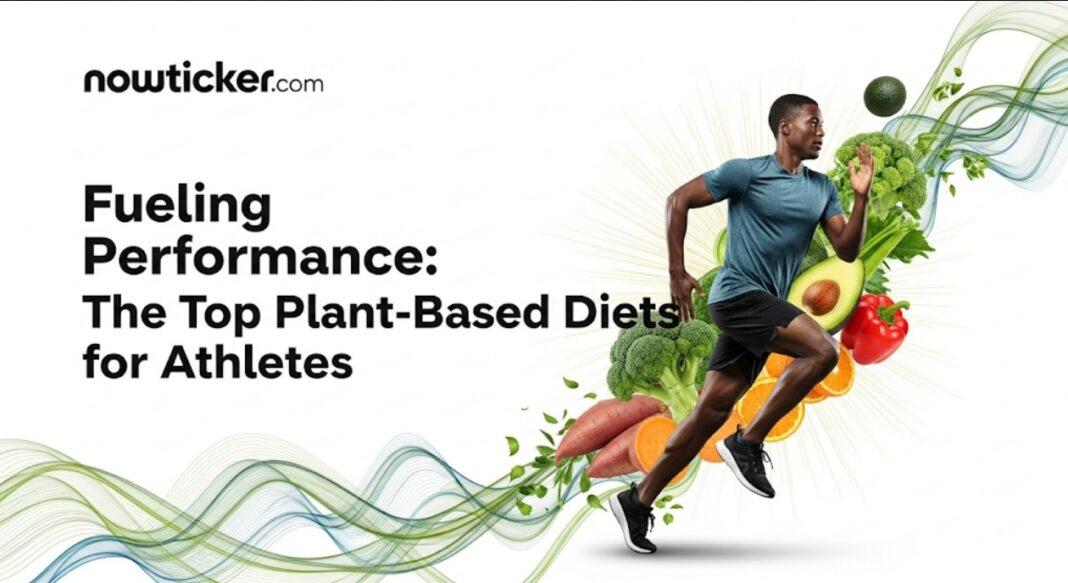Contents
Introduction
As the sports and fitness industry continues to evolve, an increasing number of athletes are turning to plant-based diets to unlock their full performance potential. By 2025, this trend is poised to expand further, with innovative approaches to nutrition that prioritize whole, nutrient-dense foods derived from plants. Whether you are a casual gym-goer or a competitive athlete, understanding the various plant-based diet strategies and how they can benefit physical performance can help you optimize your training and recovery.
In this article, we delve into the top plant-based diets for athletes in 2025, showcasing the benefits, real-world applications, and expert opinions. We will explore various dietary approaches, compile testimonials from successful athletes, and provide actionable tips to help you incorporate these principles into your training regimen.
Understanding Plant-Based Diets
Defining Plant-Based Eating
A plant-based diet primarily consists of foods derived from plants, including fruits, vegetables, legumes, nuts, seeds, and whole grains, with minimal or no animal products. The concept extends beyond vegetarianism or veganism, allowing for some flexibility if desired. Research has shown that these diets can improve health markers like cardiovascular health, weight management, and reduced inflammation—factors crucial for athletic performance.
Popular Types of Plant-Based Diets
- Vegan Diet: Excludes all animal products.
- Vegetarian Diet: Excludes meat but includes dairy and eggs.
- Flexitarian Diet: Primarily plant-based but occasionally includes meat and dairy.
- Whole Foods Plant-Based Diet: Focuses on whole, unprocessed foods, minimizing added sugars and fats.
Understanding these classifications is essential for athletes seeking to align their nutritional choices with their performance goals.
The Science Behind Plant-Based Diets
Nutritional Benefits
Research published in journals like the "Journal of Sports Medicine" has shown that plant-based diets can improve athletes’ endurance and recovery times. Key components include:
- High Antioxidants: Fruits and vegetables are rich in vitamins and minerals that combat oxidative stress.
- Hydration: Many plant foods have high water content which aids in hydration, crucial for performance.
- Fiber: Aids in digestion and enhances gut health, improving nutrient absorption critical for recovery.
Real-world Example: The Power of Plants
Elite athletes like tennis player Venus Williams have adopted plant-based diets to manage autoimmune conditions, compile more energy, and enhance performance. Williams credits her vegan diet for sustaining her high-level performance throughout her career, even playing well into her 40s.
Performance Enhancement Studies
Several studies support the assertion that plant-based diets can enhance athletic performance. An investigation published in "Nutrients" demonstrated that athletes who adopted plant-based nutrition experienced improved VO2 max and overall endurance. Such metrics are critical for athletes’ performance in long-duration events.
Examining Specific Plant-Based Diets for Athletes
1. The Vegan Diet: A Deep Dive
Vegan athletes like track and field champion Ato Boldon have praised the diet for its anti-inflammatory properties, claiming it aids in faster recovery and improved endurance. A key aspect of adhering to a vegan diet involves ensuring adequate protein intake, achievable through foods like lentils, chickpeas, and quinoa.
Practical Tips:
- Focus on protein variety: Incorporate diverse sources to cover all essential amino acids.
- Supplement wisely: Consider B12, Vitamin D, and Omega-3 supplements, as deficiencies can hinder performance.
2. The Flexitarian Diet: Balance for Performance
For athletes who find it challenging to go entirely plant-based, the flexitarian diet offers a balanced approach. It allows for moderation with animal products, enabling athletes to gain the benefits of plant-based nutrition while still having the flexibility to consume animal proteins.
User Experience:
Triathlete Jodie Nelson transitioned to a flexitarian diet and reported increased energy levels, improved digestion, and overall enhanced performance in her races. Nelson’s approach is tailored to include lean meats only during heavy training weeks, focusing on plant foods otherwise.
Actionable Steps:
- Plan meals with an emphasis on whole grains, legumes, and seasonal vegetables.
- Mind your plate balance: Aim for two-thirds plant foods to one-third animal products.
3. Whole Foods Plant-Based Diet: Nutrient Density at the Forefront
Endurance athlete Rich Roll has popularized the whole foods plant-based diet, emphasizing minimally processed foods rich in nutrients. Roll’s transformation from an unhealthy lifestyle to an ultra-endurance athlete underscores the diet’s potential.
Scientific Support:
Research from the "American Journal of Clinical Nutrition" indicates that whole foods diets are linked to lower body mass index (BMI) and reduced risk of chronic diseases—beneficial for athletes looking to maintain optimal weight.
Implementation Tips:
- Meal prep: Prepare large batches of whole grains, legumes, and vegetables to simplify meal planning.
- Stay colorful: Aim for variety on your plate; different colors usually mean different nutrients.
Expert Insights
To provide you with credible perspectives, we consulted nutrition professionals who specialize in sports diets. Dr. Lisa Davis, a sports nutritionist, emphasizes the importance of individualized nutrition: “Every athlete has unique needs, and while plant-based diets can be beneficial, they may require careful planning to address nutrient needs.”
Furthermore, Chef Jason Wrobel, noted for his focus on plant-based cooking, remarked, “Flavorful meals can not only satisfy hunger but also deliver on the nutrients that drive performance. Athletes should think creatively and embrace the whole range of plant foods.”
Frequently Asked Questions (FAQs)
1. Can I get enough protein on a plant-based diet?
Yes, a well-planned plant-based diet can meet or exceed your protein needs through varied sources like lentils, chickpeas, quinoa, hemp seeds, and tofu.
2. Will I have enough energy for exercise if I switch to plant-based?
Many athletes report improved energy levels after transitioning to a plant-based diet, thanks to the increased intake of whole foods and lower inflammation.
3. Are there any risks of nutrient deficiencies?
Potential deficiencies in B12, iron, and omega-3 fatty acids can occur on a plant-based diet. It’s recommended to monitor these and consider supplementation if needed.
4. How can I transition to a plant-based diet effectively?
Start gradually by incorporating more plant foods into your meals, swapping out meat for plant-based proteins, and experimenting with recipes before making a full switch.
5. What are the best plant-based meal options for post-workout recovery?
Meals rich in protein and carbohydrates are ideal. Consider a smoothie with spinach, banana, pea protein, and almond milk, or a chickpea salad with quinoa and a variety of colorful vegetables.
Conclusion
As we progress toward 2025, the landscape of sports nutrition will likely see a substantial shift towards plant-based diets, driven by research supporting their health benefits and improved athletic performance. These diets offer a pathway to not only enhance physical capabilities but also promote overall well-being without compromising ethical or environmental values.
Athletes of all levels can benefit from these dietary approaches, taking cues from successful individuals who have embraced plant-based eating. It’s essential to listen to your body, experiment with different plant-based strategies, and consult with professionals as needed to optimize your performance.
The world of sports is evolving, and as we look ahead, the allure of plant-based diets will only grow stronger—fueling future champions one meal at a time. Whether you’re an athlete or a health enthusiast, now is the time to embrace the benefits of a plant-based lifestyle.



